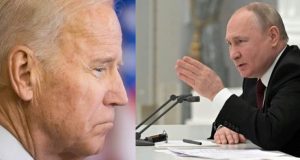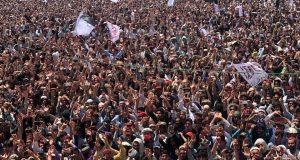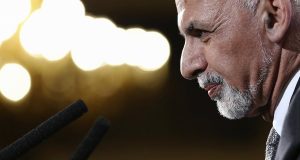
Khumariyaan: Interview with Sparlay Rawail, the lead guitarist with the band – Khumariyaan. Interviewed by Angelia Merisi
Khumariyaan: Interview with Sparlay Rawail
This interview was carried out on the 30th May 2017, between this author (Angelina Merisi) and Sparlay Rawail, the lead guitarist with the band – Khumariyaan. The following is a transcript of that conversation.
Merisi: Hello and thank you very much for taking the time from your busy schedule to carry out this interview.
Sparlay: It’s no trouble at all. You are very welcome.
Merisi: Could you firstly discuss the band – how you guys met and how the band (Khumariyaan) was formed.
Sparlay: Sure. The other three band members used to study at the same university in Peshawar, where they formed a musical society. The Rubab player (Farhan Bogra), works full-time as a cultural preservationist, as a musician and also he works in a school for needy, orphaned and street children. Shiraz Khan, (Lead Percussionist), works for an NGO in the development sector. Aamer Shafiq (Rhythm Guitarist), also works in the development sector. Most of us have Master Degrees. My full name is Sparlay Rawail. I have a degree in architecture from the National College of Arts, which is the only State run Art College in Pakistan. After I graduated, I worked for a year as a resident teacher in the university. After that, I worked as an architect with a firm and I have also been doing music ever since. I met the other three band members during a jam session at the university in Islamabad after which they were gracious enough to ask me to join them. I am the only band member with formal training in music over three years, so I had a bit of a grasp on Western music – and that is very important for us, to be able to fuse the guitar and the rubab. So they welcomed me into the band with open arms. I am a fan of repetitive, melodic music and when I listened to Farhan’s style of playing, which was very contemporary – it wasn’t like the old style of Rubab, I thought this could really be something special. Little did I know that we would still be together seven years later.
Merisi: Have you recorded any albums to date?
Sparlay: Yes. Our first album is in the works. It’s not easy to record something in Pakistan. Any worthwhile studio is private. There is no State run recording studio. Furthermore, private studios are very expensive.
Merisi: So are you guys paying for this album yourselves?
Sparlay: We have done two tours of the USA and sometimes as part of the tour contract, it includes the fee for one recording, also, there have been one or two commissioned tracks which we won the rights to, but besides that, we mostly pay for the recordings ourselves. Now, we are trying to negotiate our own recording set up. Obviously, recording with a producer, who has their own vision, is something we really welcome, but we also want to be able to record our own ideas. So this is going to be our debut album due for release in a month or two.
Merisi: This is really super news. I know there are thousands of fans worldwide very much looking forward to the release of this album. Could you talk about the music itself. For instance – the music which has inspired or influenced you, as musicians, as people and as a band in general.
Sparlay: As four individual band members, we listen to all sorts of world music, but generally speaking we all appreciate music which is ‘folk’ in nature, but also post-progressive ‘rock’, where there is a touch of ethnicity and the sounds are ambient and deep. Everyone’s tastes are different, but motivationally, because in the majority of cases, musicians are always standing in the background, accompanying singers, no one knows the names of the musicians, no one gives them money, they are rarely in the limelight. Also, it is often perceived that the singer, or front person, is the composer and musical arranger, whereas in most scenarios, it is the other way around. All the musicians in the band contribute, they all have a say in it, but in the end, the track is very often considered to be the composition/work of the singer. It is the singer/frontman who gets all the credit, who builds their individual reputation, who gets the recognition, and also gets most of the money. Our motivation therefore is to highlight the musicians who would normally be in the background. We also want to show a different side to the Pashtun youth. Nowadays, many of the Pashtun youth are tech-entrepreneurs, photographers, musicians, film-makers, they are all amazing people and we now have a generation of people whose children will say that my father used to be a musician, or my father was a film-maker. Hopefully, this will lead to people becoming more open towards the arts – in developing a more entrepreneurial mindset, in demonstrating that people can benefit from having an arts degree or being a musician. The band members, we, as individuals all have day jobs and in the evenings we do the music stuff. In this day and age, when everything is capitalist motivated, you have to make a living. As for the music, there is a neo-ethnic movement catching on right now in Pakistan. Our music is simple, it’s raw, we really enjoy playing it ourselves and I think that translates and is transmitted to the audience. We base our music on ‘folk’ arrangements, not folk compositions, but arrangements of folk music, because those compositions have been around for thousands of years and people have been moving and dancing to them for quite a while. But our arrangements are not absolutely ‘folk,’ there is a contemporary feel and arrangement to our music. We have consciously adapted this contemporary angle so that a dialogue for the evolution of this music can start. Ten years ago, the graph of Pashtun music was very much down, the level was down, the content was bad – the lyrics and composition – it was just more of the same.
Merisi: So would you say you are trying to appeal to the new generation?
Sparlay: Actually every generation, whether younger or older – they don’t like being told narratives. We don’t want to have songs about shallow things for instance. Through our music, we leave it open to the interpretation of the person. We try to channel our music towards the subconscious existential angst that you find in the youth these days – to try and help them cope with this existentialism, therefore it’s about humanity. Our hope and purpose is to try to provide ten minutes or half an hour of solace to people, considering the dreadful things that happen on a daily basis in Pakistan. We were the first band to have played a gig after the APS massacre, and people came out in their droves. People wanted to come out, to tell people and show a form of resistance, and trust me, even showing up to a concert performance is a form of resistance. If you put it into perspective, things are not as bad as they could be, but it only takes a second for the State narrative and the extremist narrative to be uncovered. In every single conversation that you try to have, if it’s progressive in vision, you will always be faced with at least half the people, sometimes more than half, who will oppose your point of view. We try to stay apolitical, but the fact of the matter is, that we wear western clothing, we play western instruments and our aim is to bring people together through our music, and sometimes people just don’t want that.
Merisi: Your last point leads me to my next question which is: Music and dance have been an integral part of Pashtun culture and society for thousands of years. Do you find that these traditions have diminished to an extent? For instance, we are aware that certain artists, singers and musicians have been forced to move abroad to continue their careers, such as Haroon Bacha, and also we hear stories not only of artists being threatened but also of the gruesome deaths of artists, particularly females. Have you guys either as a band or individually ever felt threatened in any way?
Sparlay: There is a very active class system all over the world and this also applies to Pakistan, which also includes hyper patriarchy as well. You would know that the laws that are in place for the common man in Pakistan, they only apply to a certain class of people. Here I refer to anyone who is on the poverty line or maybe just above it, or the middle class and lower middle class and females. All moralities are reserved for women. Just being a female in the country is a form of resistance because men fight their battles on the minds of women. So for us, being four males, it is easier. And then when you bring education into it, many people over here consider that having a degree means you are a gentleman of good standing in society. There is the old saying in Pakistan that one should become a doctor, lawyer or engineer which in turn puts pressure on people. This concept of acquiring a degree in order to gain social status has led people to do such things as, I’m sure you heard about the exam scandal, where degrees were being sold. In many parts of the world, employers don’t place such emphasis on someone having a degree, rather they look for skill and passion for the work, but I don’t know if that will ever happen in Pakistan. So, what I’m saying is that since we (the band), have degrees, we speak English and we are men – therefore we are accepted, particularly by most of the progressive youth. However, if one of us becomes isolated or finds himself in a place where musicians aren’t respected, then I suppose this situation could be problematic. However, since we don’t have one frontman, rather we are four frontmen, it’s more difficult to be targeted. Therefore not having a frontman also helps in this regard. Throughout the past seven years, we have fought for the right of the musician to be an upstanding member in society. Because of the fact that we have degrees and we also play music, it has become easier for Pashtun parents to allow their children indulge in their habit of playing music. Apart from that, you do get the odd phone call here and there from a confused soul who leaves you a message, but we try not to be offensive to anyone. In my mind, I sincerely think that quite a few of the talibs and the people of extremist mindset also deep down like the Rubab: they have grown up listening to it. For instance, they may have an uncle or a cousin who likes it and therefore they can find the beauty in it. We have never had guns pointed at us, but others have been unfortunate in that regard. Possibly, if our music becomes more well-known, then we might face such issues. Arundhati Roy states: “Their resistance has real consequences,” so if at some point there are consequences to our resistance, then it would mean that we are doing something right.
Merisi: Could you now discuss your tours abroad. You previously stated that you have carried out two tours of the United States thus far.
Sparlay: Yes. The first tour of the US was very extensive. It was a forty-five day tour covering eleven states. This tour was part of the “Centre Stage” cultural diplomacy initiative, whose mission is to connect foreign artists and musicians with American communities. The tour was organised by the US cultural exchange programme. We were selected and taken on this amazing tour which was covered by the New York Times.
Merisi: So I guess you now have a huge following also across the United States.
Sparlay: Yes, our ‘Sound Cloud” channel has around 78k hits on a daily basis from countries abroad.
Merisi: Before I saw you play in Dublin, you guys performed in London to a packed house by all accounts.
Sparlay: Yes, we played in London to a packed house at the Southbank Centre’s “Alchemy” festival. The atmosphere was electric and there was barely standing space at the venue. From there, as you know, we then went on to perform in Dublin. Prior to that, in 2015, we played at the ‘south by south west” festival, (The USA’s largest music festival), where over 3,000 bands play. The previous year, in 2014, the band ‘Coldplay’ also performed at this festival.
Merisi: So what are your hopes and plans (as a band) for the future?
Sparlay: As a band, we are fairly spontaneous both on and off stage and we are also very democratic. For instance, if someone puts forward an idea, we just jump at it and do it. We don’t think that much ahead of a schedule. Of course we are really looking forward to putting out our first album, after that, at some point, we want to start our own record label. There is a record label in Pakistan, not on the scale of the US or the UK, but our plan is to make a record label to record and possibly make some collaborative albums.
Merisi: Do you play many gigs in Pakistan itself and besides Peshawar, have you performed around the Pakhtunkhwa region?
Sparlay: We are probably the most prolific band from Pakhtunkhwa. We jump at any opportunity to perform because the ‘live’ music scene is something that has come into the limelight again. When you are playing, there is a sense of collective conscience and for musicians that is very important. So it is very important for us to keep going. Apart from the philosophical aspect, when talking financially – you can put out a very well made music video, but really, the money you make comes from doing live shows. We do roughly three gigs per month and we have done quite a few gigs in Peshawar. We haven’t performed all over Pakhtunkhwa because there are still people who love music but they don’t really love the musician or know how to treat them. But Peshawar is fine and recently we have been active in Karachi. Lahore, Islamabad and Peshawar was our main market, but now we are playing in Karachi of late also.
Merisi: Something I personally keep an eye on every year is the “Coke Studio Sessions.” Have you guys ever performed on the Coke Studio Sessions?
Sparlay: We have put our music forward to them, I’m sure they know about us, but it is not us who have any say in it. There are so many people in the Country who say: “you have to perform on the Coke Studio,” but it doesn’t work that way. We can’t turn up and tell them “we want to be on Coke etc.” So it’s up to them – we have made a lot of noise. We’ve been in the New York Times, we’ve been in billboard.com we’ve been in MTV TV, and so, they are aware of us. Nothing has been realised as yet. Our main aspiration, however, is to live happy, full and contented lives through music, companionship and camaraderie and go wherever our music takes us: that is the ultimate goal. It’s ok if Coke have us or they don’t. It’s ok if we get another US tour or we don’t. Our main purpose is to stay together, keep growing, keep making music, keep making new stuff and keep entertaining.
Merisi: Sparlay, I would like to thank you for agreeing to this interview. It has been wonderful, informative and fascinating. I wish you and the band enormous success in the future and very much look forward to your upcoming debut album and I hope you will return to perform in Ireland again soon. Thank you so much.
Sparlay: You are very welcome. Thank you.
Khumariyaan:
Farhan Bogra- Lead Rubab
Shiraz Khan – Lead Percussions
Aamer Shafiq – Rhythm Guitar
Sparlay Rawail – Lead Guitar
Press contact – khumariyaan@live.com
Booking Agent – for concert and performance, contact: +92 321 9070380
Photographs by: Hamza Ahmed.
 Pashtun Times Latest News
Pashtun Times Latest News







